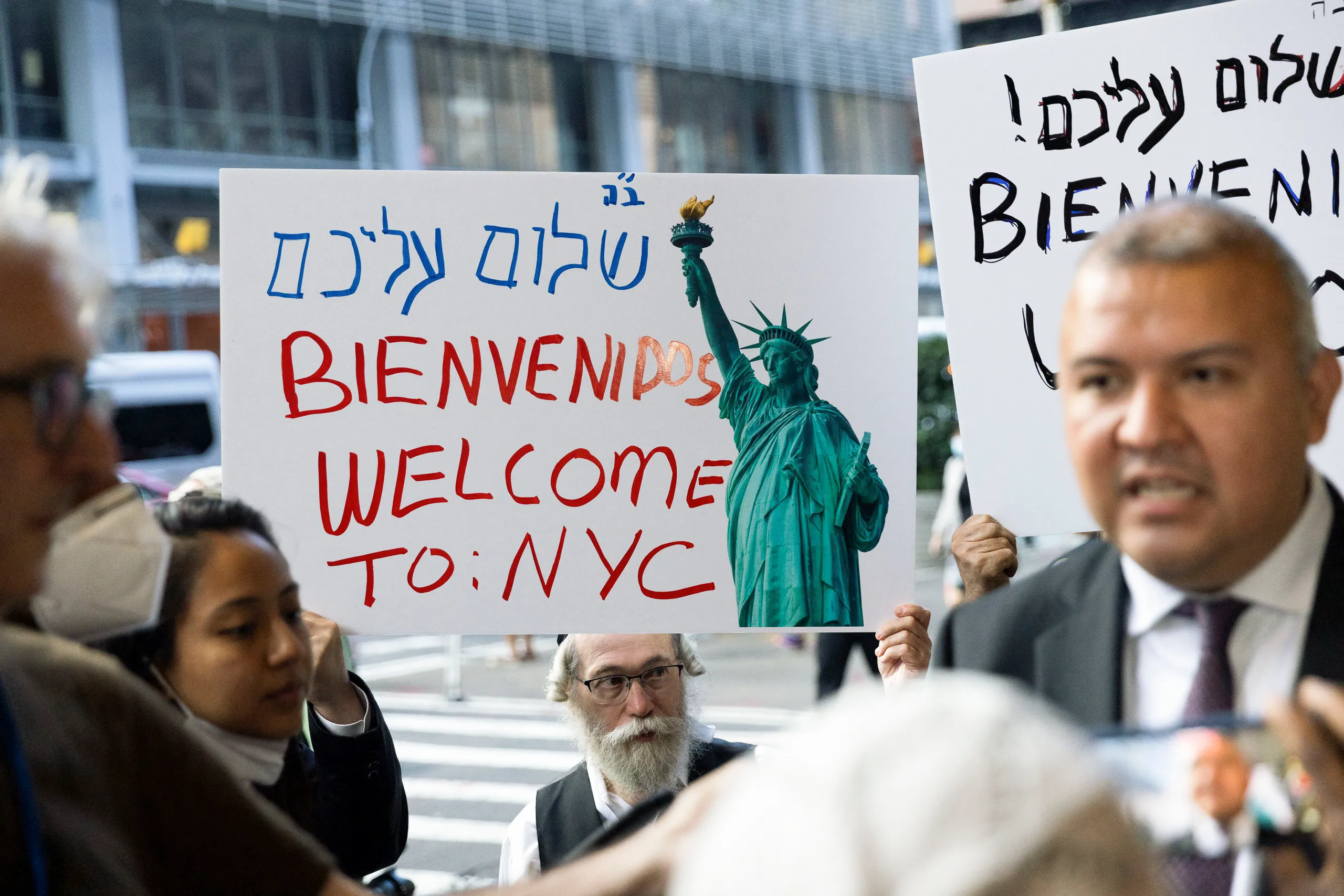By: Iris Xu
Albany, New York has become a beacon of hope for Johnson Coronel, a 26-year-old Venezuelan who fled his country with his brother in search of safety and stability. After spending time in shelters in Brownsville and San Antonio, Texas, the brothers moved to a tiny New York City shelter, sharing a twelve-person room. When officials offered them the opportunity to go to Albany, where conditions were less crowded, they eagerly accepted.
The influx of migrants and asylum seekers into New York City has overwhelmed local officials, prompting them to send people to nearby communities like Albany. While Albany, a sanctuary city, has welcomed new arrivals, other localities have expressed hostility and fear toward the immigrants. Many non-profit organizations, like Capitol District Latinos, are working tirelessly to provide support and resources to these newcomers. However, their efforts are often stretched thin.
New York has turned into a battleground over immigration issues, with strained relations between the city, neighboring towns, and activists. Some non-sanctuary cities are particularly wary of immigrants, and the immigrants fear deportation and job competition. These citizens have a range of opinions, with residents like Efren Rojas, who immigrated from Mexico as a teenager, who believes that newcomers should not receive assistance and accusing them of abusing the system. On the other hand, there are more compassionate voices like Anthony Gerome, who expresses concern about the town’s economic burden and the safety implications of accepting migrants.
The federal government’s lack of guidance and planning on immigration has further fueled the chaos and controversy. Some town officials, like Peter Crummey, feel invaded by the sudden arrival of migrants in their communities. They argue that immigration is a federal issue that requires a comprehensive plan and support from the government.
Advocates for immigrants are alarmed by the hostility expressed by some communities. They emphasize the need for assimilation support and a welcoming environment for newcomers. Organizations like Capitol District Latinos and Albany Victory Gardens have been providing these needed services, but are struggling to meet the increasing demand. Funding shortages and volunteer fatigue pose additional challenges to immigrants.
While “Help Wanted” signs may be visible in Albany, the job search is not as easy for migrants like Coronel. Language barriers and the lack of work permits hinder his, and others, ability to secure employment. With immigration courts backlogged, it could take years to obtain a valid work permit.
For Coronel and many others, Albany represents a glimmer of hope and the chance to finally find a place to call home. Despite the challenges and the resistance they face, they long for stability, the opportunity to work, and the chance to live in peace. As the immigration debate rages on, it is crucial to address the complex issues at hand and find compassionate solutions that uphold the values of inclusivity and humanity.











